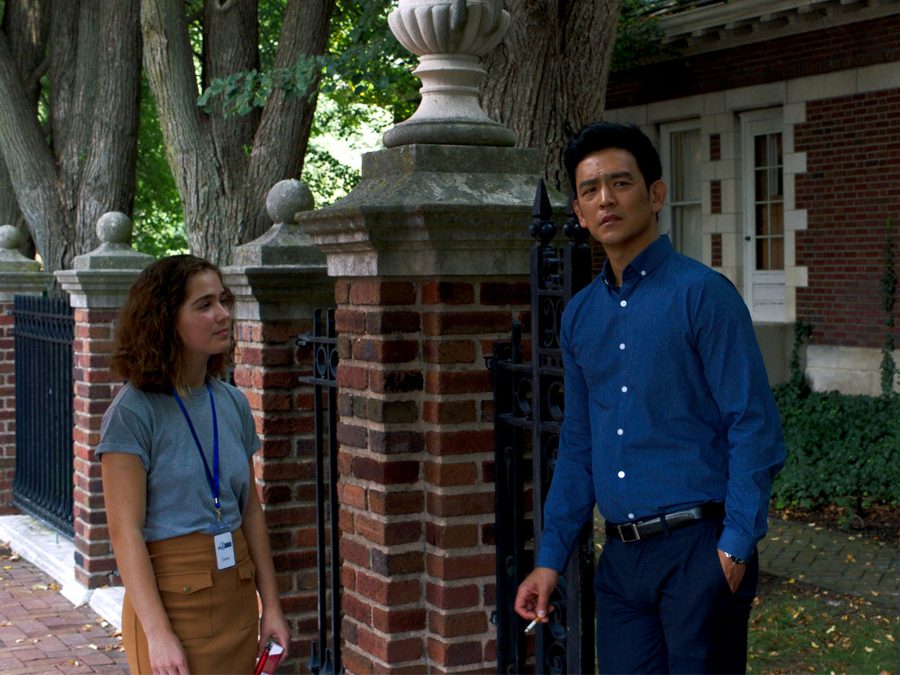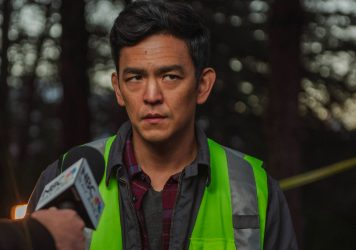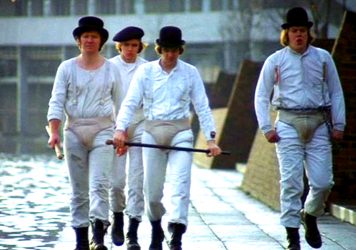This absorbing debut feature from video essayist Kogonada explores the relationship between people and spaces.
The city of Columbus, Indiana is only home to around 45,000 residents, but since the mid-1950s it has become a strange Promised Land for architecture enthusiasts. Featuring some fine examples of early Modernist public spaces, it makes for a beguiling setting in video essayist Kogonada’s debut feature.
Although best known for his explorations of other directors’ work, here Kogonada opts to tell an original story. John Cho plays Jin, a Korean-American translator who reluctantly travels to the titular town after his estranged architect father falls ill during a lecture tour. Bored and frustrated by his unscheduled pit-stop, he befriends the directionless library assistant Casey (Haley Lu Richardson), who is torn between leaving home and pursuing her passion for architecture, or staying behind to care for her mother.
While this premise alone is a little old hat, there is something decidedly earnest about Kogonada’s film. The sleepy town is bathed in warm sunlight and then cool downpours as time drags on, revealing the city as the still point of the turning universe for Jin and Casey. Their friendship is gradual but tender, imbued with long, reflective silences and awkward jokes that push the limits of their recent acquaintance – one unexpected highlight sees Jin attempt, in a roundabout way, to ask if Casey’s mother is a former drug addict.

It’s pleasing to see Cho – who for so long has been cast in underwritten roles – given a chance to shine. He plays Jin with palpable world-weariness, but also an endearing inelegance that allows you to believe he’s a real person. Haley Lu Richardson as Casey is equally well cast, bringing a bright spark of energy to the role and providing the perfect foil to the straight-laced Jin. As stylised as the buildings are around them, there’s a sense than Jin and Casey come from a very real place, and it’s easy to empathise with their personal struggles – yet they subvert the cinematic odd couple trope by being so refreshingly normal, even in their differences.
Given Kogonada’s background as a film academic and video essayist, it’s no surprise that the real strength of Columbus comes from its visuals. The film is filled with shots that capture beauty and brutality in the town’s famous construction, and one particularly compelling scene between Jin and his father’s assistant, Eleanor (a mysterious and elegant Parker Posey), is framed entirely within two mirrors in a hotel room. A sense of being tethered to a location by a sense of duty translates into a slow pace, with much of the film’s driving action taking place in the final 20 minutes or so. This is slightly jarring given the film’s minimalist aesthetic.
Columbus feels like a love letter to this unique locale, but not so much as to isolate viewers unfamiliar with the location – rather, Kogonada seems interested in the details of what connects people to places. Casey falls into the role of Jin’s personal tour guide as the pair meander between the town’s construction curiosities, comparing notes on fraught parental relationships and trading architecture anecdotes. For capturing a rare sort of intimacy on screen, Kogonada has proven himself one to watch.
Published 8 Oct 2018
‘Architectural drama’ isn’t exactly a scintillating prospect.
Aesthetically pleasing even if the narrative is a little shaky.
Imperfect, but more than enough to put Kogonada on the map.

A father uses technology to find his missing daughter in the latest ‘screenlife’ thriller.

By Adam Scovell
Visiting the southeast London estate featured in Stanley Kubrick’s 1971 film makes for a dystopian experience.

By Mark Asch
One of cinema’s Old Masters returns with this poetic and profound dissection of art and storytelling.